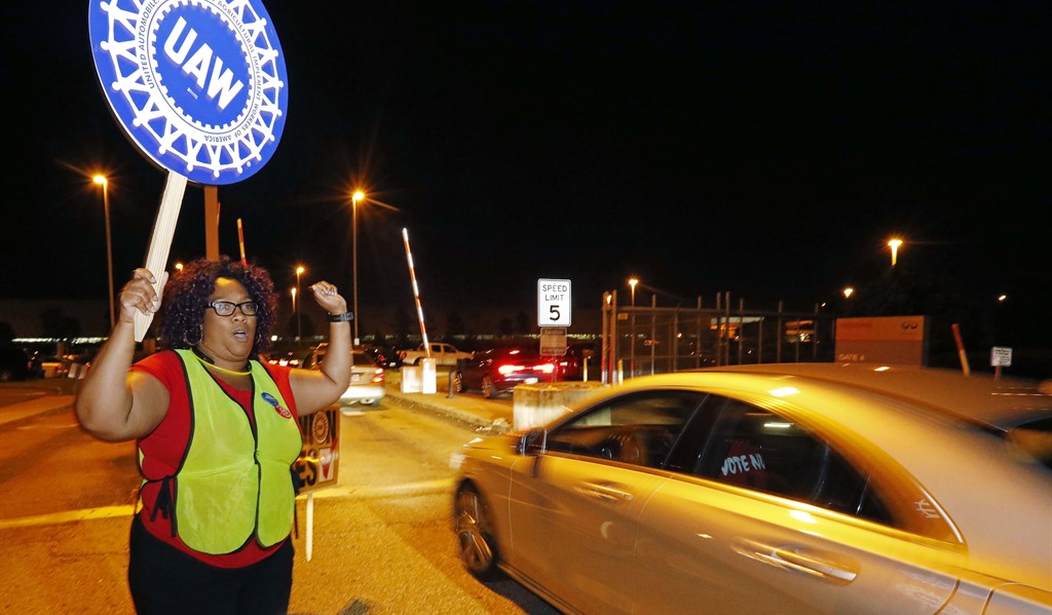Editor's note: This column was co-authored by Eric Bott and Drew Klein.
When Thomas Jefferson pondered the question of “whether one generation of men has a right to bind another,” he clearly had never seen a labor union in action.
In some workplaces, a single election decades ago continues to bind workers today to a union they never elected or even had a chance to elect.
Last month, Florida became the third state since 2011 to require government unions to hold periodic recertification elections. Wisconsin was the first, and Iowa followed suit last year.
In the other 47 states, and in the private sector, once a union has been certified it typically stays that way indefinitely.
A 2016 study showed that a mere 6 percent of private-sector employees had ever voted to certify the union that represents them. That means the other 94 percent had no voice – they either voted against the union or, more likely, simply stepped into one that was there when they arrived.
A particularly egregious example is the United Auto Workers, which organized Ford, GM, and Chrysler plants in the United States in the late 1930s and early 1940s and have never since faced a recertification vote. It’s safe to say that none of the workers who cast their ballots for the UAW in the years before World War II are still employed by any of the Big Three. But the legacy union remains.
Things are just as bad in the public sector, where another study showed that 99 percent or more of those represented by some government unions never had a chance to vote on whether to be represented.
Wisconsin, Iowa and Florida have taken steps to rid our workplaces of this injustice, and other states and Congress are considering legislation to do the same.
Recommended
In Florida, the law applies to teachers’ unions, which will now be required to report on the portion of dues-paying members in their bargaining units. If that number falls below 50 percent, they’ll be required to start a new certification process by collecting signatures from 30 percent of the unit and then winning a secret-ballot election.
In Wisconsin, all government unions have to be recertified every year.
In Iowa, all government unions have to win a recertification election whenever a new contract negotiation takes place, usually every couple of years.
Union bosses – those whose jobs might be threatened by the newfound accountability – have howled, but members are voting with their feet.
And if the bosses would listen to their members rather than working to protect their own perks, they’d see that recertification votes could actually prove beneficial to organized labor.
Union membership declined in Wisconsin and Iowa. But in the latter, where the law applied to1,203 public-sector bargaining units with about 120,000 employees, the first wave of recertification voting late last year saw 93 percent of the bargaining units voting to recertify. Only 32 out of 468 rejected their unions.
Unions that are truly interested in representing workers rather than pushing ideological agendas should have no problem facing recertification votes, which can create competition among unions for the support of workers and force union officials to better represent those workers, just as competition between companies produces better products and improved services.
Other states are taking notice. Lawmakers in Michigan, Missouri and Oklahoma have introduced union recertification legislation.
Requiring recertification votes is especially crucial in the 22 states that do not have right-to-work laws, where employees are held captive to union shops.
But even in the 28 right-to-work states, recertification requirements would make a difference to employees who, while no longer forced to pay union dues as a condition of employment, are still forced to accept the monopoly representation of their bargaining unit’s union. In almost every instance, that’s going to be a union they had no voice in choosing.
We urge state legislators to give workers a voice that allows them to choose whether to bind themselves to a union and not, as Jefferson wrote, be bound by the actions of a previous generation.
Eric Bott is Wisconsin state director of Americans for Prosperity; Drew Klein is AFP’s Iowa state director; Chris Hudson is AFP’s Florida state director.

























Join the conversation as a VIP Member